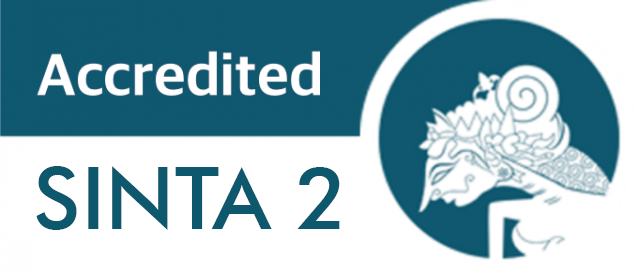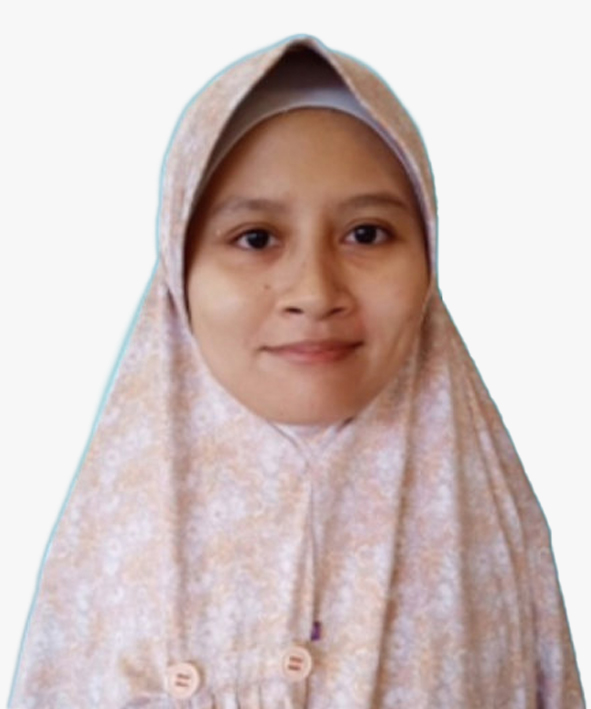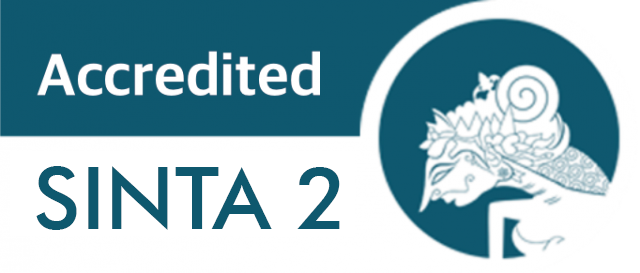Emotional Loneliness in Elderly: Association with Cognitive Performance and Sleep Quality in One of Indonesia’s Rural Areas
Introduction: A growing body of studies focuses on the association between loneliness defined as social isolation with sleep quality and cognitive performance, whereas emotional loneliness has not received much attention.
Objective: Determine the association between emotional loneliness, cognitive performance, and sleep quality in one of Indonesia’s rural areas.
Method: The sample comprised 30 Indonesian individuals > 60 years old living in rural areas. Cognitive performance was evaluated using the Mini-Mental State Examination (MMSE). The quality of sleep was measured using the Pittsburgh Sleep Quality Index. Meanwhile, emotional loneliness was conducted using the UCLA Loneliness Scare. Using Pearson correlation, bivariate analysis was performed between physical health, sociodemographic factors, cognitive function, and sleep quality with loneliness.
Results: There is a significant moderate correlation between loneliness and diabetes (p-value = 0.001, r = 0.573). There is a significant low correlation between loneliness and MMSE score (p-value = 0.03, r = 0.397). And there is a significant high correlation between loneliness and PSQI score (p-value = 0.000, r = 0.886). Two components of sleep quality that show a statistically significant correlation with loneliness are subjective sleep quality (p-value = 0.000, r = 0.6) and sleep duration (p-value = 0.023, r = 0.414 ).
Conclusion: This is the first study to examine the association between emotional loneliness with sleep quality and cognitive function in one of Indonesia’s rural areas.
Keywords: Loneliness, Sleep quality, Cognitive performance, Elderly
INTRODUCTION
Life conditions, life expectancy, and longevity keep improving making aging a dominant phenomenon in communities. This condition is leading to a higher number of elderly population. The number of population above the age of 60 is predicted to double globally in the next 40 years. It is also estimated that the proportion of elderly in developing countries will reach 80%. The nature of aging creates circumstances for loneliness, it places people in situations that make them feel lonelier. One-third of the elderly are estimated to experience some degree of loneliness with an elevated risk of loneliness as they age[1]. Loneliness is now understood to represent a “hidden killer” cause of its significant negative impact on both physical (chronic disease: cardiovascular disease, stroke, diabetes, etc) and mental health (depression, anxiety, etc)[2]. It’s also correlated with high morbidity and mortality[3].
Loneliness, despite its growing studies, still faces conceptual issues. It has been variously defined and understood by different authors. It is a necessity to reach a consensus definition of loneliness. When trying to understand loneliness and its varied definitions, it can be concluded that multiple concepts depend on their focus, identifying different theoretical perspectives. These included the social need approach, cognitive discrepancy approach, interactionist approach, deficits in social relationships, and consequences of the universal human need to belong[4]. It is crucial to distinguish between loneliness and social isolation, and further with solitude. Loneliness is a negative, subjective, and qualitative experience of dissatisfaction with one’s relationship or perceived social acceptance. In contrast, solitude is a positive experience where a person chooses to be alone. Social isolation is a harmful physical and objective state in which a person lacks social contact[5].
Loneliness is a multidimensional construct associated with multiple variables. This multidimensional construct becomes more distinct in the elderly due to their characteristic difference in many aspects such as physical health, sleeping patterns, and cognitive performance. Studies on its association with physical health showed that it is mainly associated with pathologies related to the hypothalamic-pituitary-adrenal axis, hyperstimulation, cardiovascular risk, high blood pressure, high cholesterol, sleep disorders, migraine, immune function, etc[6]. Sleep disorders are one of the common health issues among older adults. The prevalence of sleep disorders in the elderly varied from 10.4% to 62.1%[7][8]. Only a small proportion of research shows the relationship between loneliness and sleep quality[9]. Some researchers suggest that living with another person improves sleep quality which demonstrates the association of social isolation with sleep quality instead of loneliness[10]. Meanwhile, several longitudinal studies in aging have shown that loneliness is associated with impairment in cognitive functioning, but none yet show the association between loneliness and each subfunction of cognitive performance[11]. The growing body of literature has been focusing so much on the relationship between loneliness and social isolation, instead of emotional loneliness, with multiple distinctive variables in the elderly. This study aims to analyze the association between emotional loneliness, physical health conditions, sleep quality, and cognitive performance. Further, this study also analyzes loneliness with each subscale of sleep quality and cognitive performance. The previous studies on loneliness also focus more on high-income developed countries, therefore this study will give attention to a rural area in low-income developing countries[12].
METHODS
A cross-sectional study using an in-person structured interview was conducted in Puskesmas Trawas, Mojokerto, East Java, Indonesia. This interview comprised questionnaire surveys and a cognitive function test conducted by well-trained staff. The inclusion criteria were as follows: age 60 years and older, currently living in the Trawas area, able to write as well as draw, and able to recall events that occurred within one month. The exclusion criteria were as follows: communication impairment. All the participants provided written informed consent.
Sociodemographic factors and physical health conditions were collected from the questionnaire. The sociodemographic factors included age (years), sex (male or female), occupation (retired, housewife, farmer, entrepreneur), marital status (married or divorced), education (elementary or lower, junior high school, senior high school, and college or higher), Smoking (yes or no), and coffee consumption (yes or no). The physical health conditions included body mass index (BMI) (normal, overweight, and obesity), blood pressure, and health issues (diabetes and/ or hypertension).
Cognitive function was assessed according to The Mini-Mental State Examination (MMSE) which consists of the following sub-functions: orientation, registration, attention and calculation, repetition/recall, and language MMSE scores range from 0 to 30. The higher the score shows the better the cognitive functioning. An MMSE score < 24 indicates cognitive deficits. This study used the Indonesian language version of MMSE with 88% sensitivity and 96% specificity[13].
Sleep quality was assessed according to the Pittsburgh Sleep Quality Index (PSQI) which consists of the following components: subjective sleep quality, sleep latency, sleep duration, sleep efficiency, sleep disturbance, use of sleep medication, and daytime dysfunction. This assessment was carried out based on the determination of the overall sleep quality of the elderly during the last month. The total scores of the seven components were then summed and interpreted into two categories with a cut-off of 5, higher than that means poor sleep quality. This study used the Indonesian language version of PSQI with Cronbach alpha 0.776, sensitivity 1, and specificity 0.81[14].
Emotional loneliness was assessed according to the UCLA Loneliness Scale version 3 which consists of 20 items with 4
R. Bandari, H. R. Khankeh, F. M. Shahboulaghi, A. Ebadi, A. A. Keshtkar, and A. Montazeri, “Defining loneliness in older adults: protocol for a systematic review,” Syst. Rev., vol. 8, no. 1, p. 26, Dec. 2019, doi: 10.1186/s13643-018-0935-y.
C. Bugallo-Carrera, C. Dosil-Díaz, L. Anido-Rifón, M. Pacheco-Lorenzo, M. J. Fernández-Iglesias, and M. Gandoy-Crego, “A systematic review evaluating loneliness assessment instruments in older adults,” Front. Psychol., vol. 14, Apr. 2023, doi: 10.3389/fpsyg.2023.1101462.
S. Grover, “Loneliness Among the Elderly: a Mini Review,” Consort. Psychiatr., vol. 3, no. 1, pp. 30–36, Jan. 2022, doi: 10.17816/CP143.
V. Motta, “Key Concept: Loneliness,” Philos. Psychiatry, Psychol., vol. 28, no. 1, pp. 71–81, 2021, doi: 10.1353/ppp.2021.0012.
W. E. Hipson, S. Kiritchenko, S. M. Mohammad, and R. J. Coplan, “Examining the language of solitude versus loneliness in tweets,” J. Soc. Pers. Relat., vol. 38, no. 5, pp. 1596–1610, May 2021, doi: 10.1177/0265407521998460.
P. M. Carrasco, D. P. Crespo, C. M. Rubio, and M. Montenegro-Peña, “Loneliness in the Elderly: Association with Health Variables, Pain, and Cognitive Performance. A Population-based Study,” Clínica y Salud, vol. 33, no. 2, pp. 51–58, Jun. 2022, doi: 10.5093/clysa2021a14.
H. J. Denison et al., “Poor sleep quality and physical performance in older adults,” Sleep Heal., vol. 7, no. 2, pp. 205–211, Apr. 2021, doi: 10.1016/j.sleh.2020.10.002.
L. Shi et al., “Sleep disturbances increase the risk of dementia: A systematic review and meta-analysis,” Sleep Med. Rev., vol. 40, pp. 4–16, Aug. 2018, doi: 10.1016/j.smrv.2017.06.010.
E. Ben Simon and M. P. Walker, “Sleep loss causes social withdrawal and loneliness,” Nat. Commun., vol. 9, no. 1, p. 3146, Aug. 2018, doi: 10.1038/s41467-018-05377-0.
L. McLay, H. A. Jamieson, K. G. France, and P. J. Schluter, “Loneliness and social isolation is associated with sleep problems among older community dwelling women and men with complex needs,” Sci. Rep., vol. 11, no. 1, p. 4877, Mar. 2021, doi: 10.1038/s41598-021-83778-w.
A.-J. Kyröläinen and V. Kuperman, “The Effect of Loneliness on Cognitive Functioning Among Healthy Individuals in Mid- and Late-Adulthood: Evidence From the Canadian Longitudinal Study on Aging (CLSA),” Front. Psychol., vol. 12, Sep. 2021, doi: 10.3389/fpsyg.2021.701305.
R. Naito et al., “Impact of social isolation on mortality and morbidity in 20 high-income, middle-income and low-income countries in five continents,” BMJ Glob. Heal., vol. 6, no. 3, p. e004124, Mar. 2021, doi: 10.1136/bmjgh-2020-004124.
E. Hogervorst et al., “Validation of two short dementia screening tests in Indonesia,” Vasc. Dement. Risk Factors, Diagnosis Treat., pp. 235–256, 2011.
Ikbal Zendi Alim, “Uji validitas dan reliabilitas instrumen pittsburgh sleep quality index versi Bahasa Indonesia = Test validity and reliability of the instrument pittsburgh sleep quality index Indonesia language version.” [Online]. Available: https://lib.ui.ac.id
D. W. Russell, “UCLA Loneliness Scale (Version 3): Reliability, Validity, and Factor Structure,” J. Pers. Assess., vol. 66, no. 1, pp. 20–40, Feb. 1996, doi: 10.1207/s15327752jpa6601_2.
K. J. SMITH and C. VICTOR, “Typologies of loneliness, living alone and social isolation, and their associations with physical and mental health,” Ageing Soc., vol. 39, no. 8, pp. 1709–1730, Aug. 2019, doi: 10.1017/S0144686X18000132.
R. E. Henriksen, R. M. Nilsen, and R. B. Strandberg, “Loneliness increases the risk of type 2 diabetes: a 20 year follow-up – results from the HUNT study,” Diabetologia, vol. 66, no. 1, pp. 82–92, Jan. 2023, doi: 10.1007/s00125-022-05791-6.
Y. Jang, E. Y. Choi, N. S. Park, D. A. Chiriboga, L. Duan, and M. T. Kim, “Cognitive health risks posed by social isolation and loneliness in older Korean Americans,” BMC Geriatr., vol. 21, no. 1, p. 123, Dec. 2021, doi: 10.1186/s12877-021-02066-4.
B. W. Palmer, “The effects of loneliness and social isolation on cognitive functioning in older adults: a need for nuanced assessments,” Int. Psychogeriatrics, vol. 31, no. 04, pp. 447–449, Apr. 2019, doi: 10.1017/S1041610218001849.
D. Bzdok and R. I. M. Dunbar, “The Neurobiology of Social Distance,” Trends Cogn. Sci., vol. 24, no. 9, pp. 717–733, Sep. 2020, doi: 10.1016/j.tics.2020.05.016.
J. A. Lam et al., “Neurobiology of loneliness: a systematic review,” Neuropsychopharmacology, vol. 46, no. 11, pp. 1873–1887, Oct. 2021, doi: 10.1038/s41386-021-01058-7.
M. Cardona and P. Andrés, “Are social isolation and loneliness associated with cognitive decline in ageing?,” Front. Aging Neurosci., vol. 15, Feb. 2023, doi: 10.3389/fnagi.2023.1075563.
M. A. Hom, C. Chu, M. L. Rogers, and T. E. Joiner, “A Meta-Analysis of the Relationship Between Sleep Problems and Loneliness,” Clin. Psychol. Sci., vol. 8, no. 5, pp. 799–824, Sep. 2020, doi: 10.1177/2167702620922969.
J. R. H. Wakefield, M. Bowe, B. Kellezi, A. Butcher, and J. A. Groeger, “Longitudinal associations between family identification, loneliness, depression, and sleep quality,” Br. J. Health Psychol., vol. 25, no. 1, pp. 1–16, Feb. 2020, doi: 10.1111/bjhp.12391.
G. Jia and P. Yuan, “The association between sleep quality and loneliness in rural older individuals: a cross-sectional study in Shandong Province, China,” BMC Geriatr., vol. 20, no. 1, p. 180, Dec. 2020, doi: 10.1186/s12877-020-01554-3.
J. Zitser et al., “Pittsburgh Sleep Quality Index (PSQI) responses are modulated by total sleep time and wake after sleep onset in healthy older adults,” PLoS One, vol. 17, no. 6, p. e0270095, Jun. 2022, doi: 10.1371/journal.pone.0270095.
Copyright (c) 2024 Olga Atsira, Ayu Nisa', Muhammad Hanun Mahyuddin, Rakha Rahmatullah, Aita Silia, Azimatul Karimah

This work is licensed under a Creative Commons Attribution-ShareAlike 4.0 International License.
1. Copyright of this journal is possession of the Author, by the knowledge of the Editorial Board and Journal Manager, while the moral right of the publication belongs to the author.
2. The journal allows the author(s) to retain publishing rights without restrictions.
3. The articles are published under a Creative Commons Attribution Share-Alike (CC BY-SA) license. Many research funding bodies prefer the CC BY-SA license because it allows for maximum dissemination and re-use of open access materials. Users are free to share (copy, distribute, and transmit) and remix (adapt) the contribution under this license, including for commercial purposes, as long as they attribute the contribution in the manner specified by the author or licensor.




























